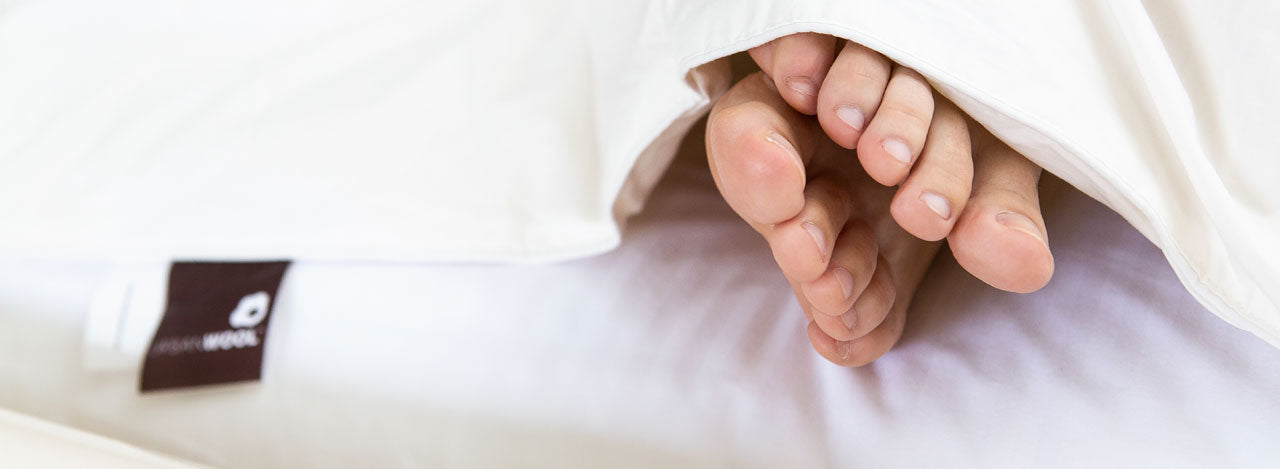SLEEP ADVICE

Sleep is something our bodies require every day. It’s vital for our health and wellbeing, and not only do we function less well when we don’t get enough quality sleep, but it can lead to long-term health problems such as obesity, depression and impaired learning. That’s why we need to do all that we can to ensure that we enjoy quality sleep and deal with any sleep problems.

Sleep Tips for Children
- Ensure that your child is in a routine and put them to bed at the same time each night and ensure they wake at the same time each morning
- Keep lights down low
- Don’t talk too much, keep vices low
- Put babies down as soon as they’ve been fed and changed
- Don’t play with children, read a story instead
- Keep a sleep diary if necessary to track patterns
Sleep Tips for Teenagers
- At least eight hours sleep is ideal
- Regular exercise at least 5 times a week for around 20 minutes
- Soda and caffeine should be kept to a minimum
- No heavy meals leading up to bed time
- Routine is important – same time to bed every night
- Avoid using electronic devices (TVs, gaming machines and more importantly, tablets and smartphones) in the hour before bedtime. Blue light emitting from these gadgets stimulates the brain and inhibits melatonin production – the hormone you need to sleep.
- Ensure a good sleep environment – a room that is dark, cool, quiet, safe and comfortable.
- Make sure they have a comfortable bed. It may be time to get a new one – and encourage him or her to choose it themselves.
- Remember, habits learned in adolescence often become lifetime habits – so make sure good sleep habits are learned early.
Sleep Tips for the Over 50’s
Many older people experience a change in their sleeping patterns.
There are all sorts of ways in which we can help ourselves to a better night’s sleep- all of them really based on good old-fashioned common sense.
- Exercise for 20 – 30 minutes at least three days a week. A brisk walk will do – but not too close to bedtime.
- Limit naps: If you need a nap, don’t take longer than 30 minutes.
- Get out in the fresh air: Studies show people who get adequate natural daylight tend to sleep better at night.
- Sleep in a cool, dark room on a comfortable, supportive mattress.
- Check medications: Some medications may cause daytime drowsiness while others may cause sleeplessness. Ask your doctor.
- Don’t worry about falling asleep: Stay relaxed. The more you worry, the less you’ll sleep.
- Avoid stimulants such as coffee, tea, chocolates and coke as they make it harder to fall asleep and stay asleep. Try a warm milky drink instead.
- Limit drinking liquids a few hours before bedtime to save being ‘up and down’ all night. And remember that while alcohol may initially help you to relax and sleep, it may keep you awake later in the night.
- Don’t go to bed full or hungry as this could make it difficult to sleep through the night.
- Go to bed at the same time each night and wake up at the same time each morning.
How to Keep Cool when it’s Hot
- Open windows to create a draught and let air circulate
- Keep curtains or blinds drawn during the day to keep the sun out.
Use lightweight, natural bedding fibres such as wool and cotton - Wear light cotton nightwear. This is actually better than wearing nothing at all as natural fabric will absorb any perspiration.
- If you’ve got long hair, tie it back.
- Have a cool shower or bath before bedtime to lower your core body temperature.
- Drink plenty of cold water during the evening and keep a glass by the bed.
- Avoid too much caffeine, alcohol or a big meal.
- Cool a pillow case in the fridge before bedtime use natural fibres such as wool and cotton. Avoid synthetic covers
- Use a fan – the remedy for 20% of people. If it’s really hot, put a tray of ice and a little water in front of the fan which will cool the air even more.
- When you buy a new bed, look out for one that is made from natural fibres or incorporates new temperature regulating technology.
- If you share a bed, make sure it’s big enough for two people, so you can sleep without disturbing each other: 5ft wide should be your minimum.
How to Keep Warm when it’s Cold
- Wear night clothes such as pyjamas or a large T-shirt to keep you warm.
- Natural fibres such as wool, cotton or silk will keep you warmer than synthetic materials.
- Have a warm bath just before you go to bed. This will gently warm and relax you to help you feel sleepy.
- Have a warming, milky drink.
- Try to take some exercise which will get the circulation going to help keep the body warm – but don’t do vigorous exercise too close to bed time as you may feel too invigorated to sleep.
- Use several layers of bedding rather than one single layer. Layers will trap warm air and are easily removed if you get too hot.
For more advice on sleep, visit: https://www.healthline.com/nutrition/17-tips-to-sleep-better

